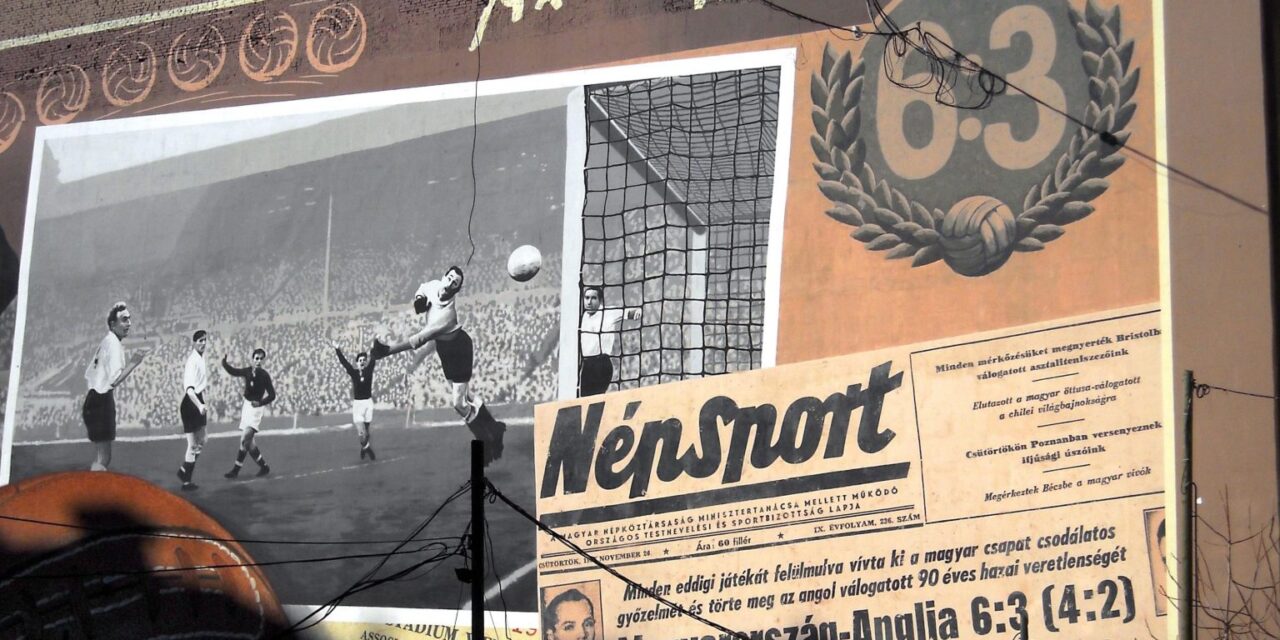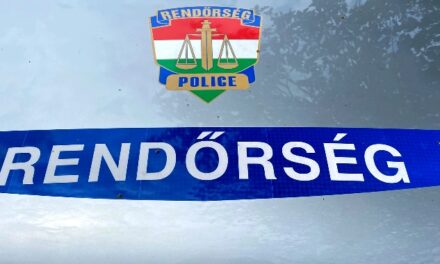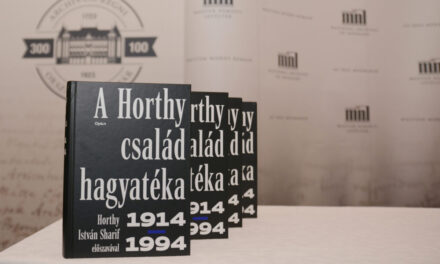Seventy years ago, on November 25, 1953, the match of the century was played: the Hungarian Golden Team, considered the best in the world, defeated the English national football team, which had been undefeated at home, 6-3 in the sanctuary of football, Wembley Stadium in London.
At the venue, 105,000 spectators could see how the Hungarians "slammed" the home team with three goals from Nándor Hidegkuti, two from Ferenc Puskás and one from József Bozsik. In commemoration of the historic sports success, the MLSZ declared November 25 the day of Hungarian football. On the occasion of the 70th anniversary, the public media commemorates the legendary clash with an all-day program stream.
The leaders of the Hungarian national team arranged the match at the 1952 Helsinki Olympics, which Mátyás Rákosi, the all-powerful leader of the Communist State Party, initially took very seriously, but after seeing the propaganda potential inherent in a possible victory, he allowed the footballers to travel. The hosting English began to advertise the event as the match of the century, in which two football superpowers, the "English lions" who invented the game, clash with the "magical Hungarians" claiming the throne.
The English believed that their players were better both physically and technically, and ignoring the tactical innovations that appeared on the continent, they stood up in an outdated system.
The Olympic champion, the Golden Team, which remained undefeated in 24 matches, ran out in the 4-4-2 formation onto the packed Wembley lawn, with II. British Queen Elizabeth also appeared.
The 105,000 spectators had not even taken their seats when Hidegkuti scored in the opponent's net in the first minute, the action ran so fast on the pitch that the goalkeeper didn't even have time to move (0-1). After barely a quarter of an hour, the English answered: Mortensen started Sewell, who shot into the lower left corner (1-1). In the 20th minute, Czibor ran up the left side and found Puskás, who passed the ball to Hidegkuti, who scored his second goal (2-1). For the third Hungarian goal, after a spectacular delivery of the ball, Czibor passed it flat to Puskás, who
with his world-famous pull-back trick, he laid down the slipping Wright, the captain of the opposing team, one of the best defenders in the world, and then bombed defenselessly into the short top corner (3-1).
For the fourth Hungarian goal, Bozsik was able to take a free kick from twenty-five meters, which Puskás put his foot into halfway, and the ball bounced in at the opposite post (4-1). At the end of the first half, Mortensen improved the English national team, the teams went to the dressing room with a score of 4-2.
In the 50th minute, Puskás pounced on a free kick, passed to Bozsik, who shot the ball from outside the penalty area into the right side of the goal, under the crossbar (5-2). Three minutes later, Puskás set up Hidegkuti, who scored a hat-trick (6-2), and Ramsey set up the final result from a penalty (6-3).
The legendary English sportsmanship is praised by the fact that the spectators often applauded the solutions of the Hungarian players. The match was broadcast on the Hungarian radio by György Szepesi, during which the streets throughout the country were deserted, so that the euphoria was even greater. Jackie Sewell, who scored England's first goal, recalled the match: “People thought we were going to win, but we learned a lesson that day. We didn't play badly, but the Hungarians were simply fantastic.
It was the best team I've ever seen play football in my life."
During the match, the better fitness, familiarity and tactical superiority of the Hungarian team stood out: the 4-4-2 formation favored by the national team captain Gusztáv Sebes surprised the opponent, the Hungarian attackers reached the English goal almost unhindered. Nowadays, many people believe that Sebes practically revolutionized football with his attacking tactics.
The 6-3 win against the English was the Golden Team's most famous match, which became legendary in a short time - although in the second leg, on May 23, 1954, they inflicted an even more humiliating 7-1 defeat on the English, who - as the Pest humor said –
"they came for a week and left with seven..."
As a result of the shocking defeats, English football began to open up to different training methods and tactical systems, and thirteen years later, in 1966, their national team won the world championship title. (The national team captain at the time, Sir Alf Ramsey, himself played in the infamous 1953 match for them.)
The triumph of the Golden Team lasted until the final of the 1954 World Cup in Switzerland. Germany, which was defeated 8-3 during the group matches in the memorable final in Bern, surprisingly proved to be better than the Hungarian national team 3-2.
The Times: "In the match against the Hungarian team, England lost their decades-long domestic unbeaten streak. The English national team was defeated on solid English soil by the foreign conqueror, the Olympic champion team, which now returns to its home country with an extremely valuable success. A hundred thousand spectators saw the twilight of the gods. The Hungarians made history by beating England on the ground, in the air and in tactics."
Daily Mirror: "England, the old master, was beaten by a better, new, streamlined champion both in terms of play and shooting skills: the best team in Europe and even the world." The last 30 minutes were a sporting tragedy."
Daily Mail: "The audience, disappointed with the English players, paid their respects to the impressive ball art of the Hungarians. For twenty years, they have not seen football in England like the one presented by the Hungarians, who surpassed the English with classics."
Neue Zürcher Zeitung: "The Hungarians were the real masters of the situation throughout the match. Just as it is unnecessary to carry water into the sea, it is unnecessary to list again the good qualities of Hungarian football stars."
Corriere dello Sport: "What didn't happen for 90 years, now 90 minutes was enough. Half an hour was enough for the Hungarians to literally destroy the British lion."
Avanti: "This match also proved that Hungarian football is the first in the whole of Europe and dispelled the legend of the English undefeated at home, which had lasted for ninety years. After ninety years, these Hungarian boys went to London, rolled up their shirt sleeves and proved the wrong illusions of those who always thought of themselves as the masters of European football."
L'Equipe: "In the match, it seemed as if the English aged ten years with each goal. You can almost say that the English team has sunk into its past, but at the same time, the Hungarians have become the masters of football with their brilliant success."
Le Figaro: "The Hungarians forced the English to change roles unexpectedly: as students, they taught their master a lesson. The knowledge of the Hungarian players is so high that all their difficult technical or tactical moves seemed quite natural."
Le Monde: "The Hungarian team had a huge advantage all along, their victory was never in doubt."
Parisien Liberé: "The Hungarians achieved great success on the field where the world's best before them failed one after another. The English can no longer boast that they are invincible at home."
Wiener Kurier: "The 6-3 result does not faithfully express the great superiority of the Hungarian team."
Neue Wiener Tageszeitung: "In this match, the Hungarian national team presented the high school of football on English soil, in the homeland of football."
Junge Welt: "The soccer teacher became a student on Wednesday afternoon."
Der Abend: "A Hungarian inn in London. The current success of the Hungarians is not the result of chance, but the result of well-planned construction work in the field of sports as well."
Rudé Právo: "Hungarian football used the old traditions and built its modern style of football on it, which is based on scientific principles and a new education system. Czechoslovakian football must use the experience of the Hungarians."
The 6-3 victory over England left an indelible mark in sports history. In memory of the victory, the Hungarian Football Association from 1993
celebrates November 25 as Hungarian Football Day.
The match inspired Péter Timár's film 6:3 (Play Again, Tutti), in 2013 an exhibition was organized at the Hungarian Cultural Center in London, and a year later the 6:3 Hungarian victory was painted in the VII. on one of the district firewalls.
Featured image: The capital VII. district, in Rumbach Sebestyén Street, the creative group Neopaint Works immortalized the 1953 golden triumph of the Hungarian football team in London, the match of the century, the 6:3 victory of the Hungarian team at Wembley Stadium on a 1,000 square meter mural painting (Photo: MTVA/Bizományosi: Jászai Csaba)












